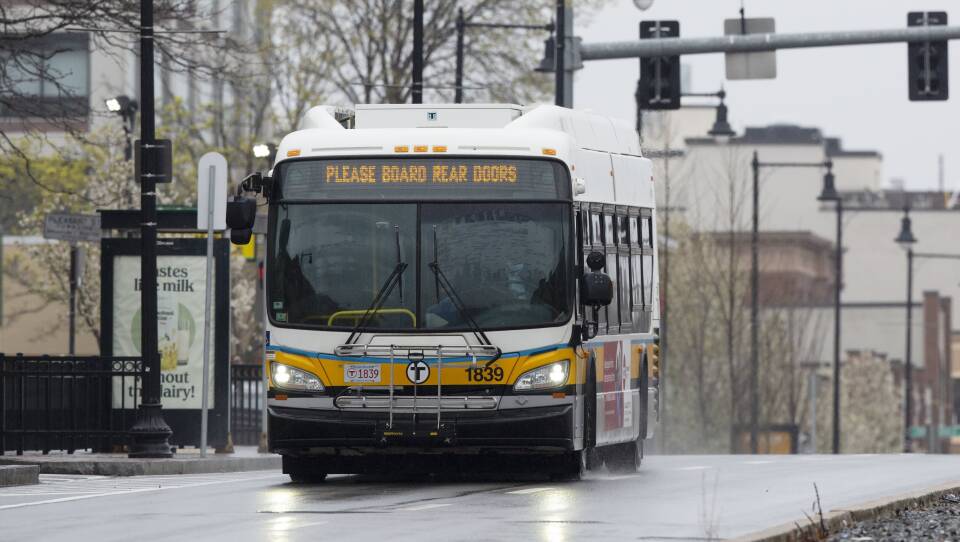If you drive double the speed limit or run a red light anywhere in Massachusetts, you won’t get ticketed by a camera — because there aren’t any. That kind of technology to enforce traffic laws is banned in the Commonwealth.
But the MBTA will be a pioneer in this field of automatic traffic enforcement by taking advantage of new legislation signed at the beginning of this year.
Soon, the agency will be mounting cameras on its buses to automatically ticket drivers who illegally park in bus lanes and bus stops.
T officials outlined the plan, which is still in its early stages, during a meeting of the MBTA’s board of directors on Thursday. They said they hope to launch the program later this year after finding partners to help develop the automated ticketing technology, adopting enforcement regulations and receiving public comment on the plan.
The program is in accordance with a new state law signed by Gov. Maura Healey in January that allows the MBTA and the state’s Regional Transit authorities to issue parking citations using bus-mounted cameras. Under the new law, the T will only be able to ticket drivers parked in bus infrastructure, not moving vehicles illegally using bus lanes. Another new law lets school buses mount cameras, too, to ticket drivers that put students’ safety at risk.
“Direct access to the curb is essential for riders to be able to get on and get off the bus safely,” said Alexandra Hallowell, who oversees the MBTA’s efforts to improve bus service. “When bus stops are blocked and buses are unable to reach the curb, riders need to exit the vehicle into the street or can’t exit the vehicle at all.”
According to Hallowell, automated ticketing will both help ensure the safety of riders, especially people with mobility disabilities and visual impairments, and improve service.
Transit agencies in several other major cities, including New York City, Philadelphia, Washington D.C., Chicago, Oakland, San Francisco and Los Angeles, have adopted camera enforcement programs of their own. Hallowell said that those systems have experienced “an average of 15 to 25% improvements in time savings” for riders.
MBTA officials recently issued a “request for information” to technology firms that could help the agency develop the automated enforcement system. After securing partners to procure the technology, the T plans to adopt a regulatory framework for the program over the summer before installing cameras in the fall. A soft launch, starting with cameras on a small number of buses, is scheduled for late fall with plans to expand the ticketing system in 2026.
Transit advocates are celebrating the new program, which they believe will drastically improve service for bus riders — 82% of whom are low-income.
“This new initiative will help keep bus lanes clear, promoting faster, more reliable and accessible service,” said Katie Calandriello, interim executive director at TransitMatters.
Under the new state law, drivers who are caught illegally parking in bus stops will face a $100 fine. Drivers parked in a bus lane can be fined between $25-$125. Any extra revenue generated by automatic ticketing will go to the state’s Transportation Trust Fund, which helps fund infrastructure projects across Massachusetts.





